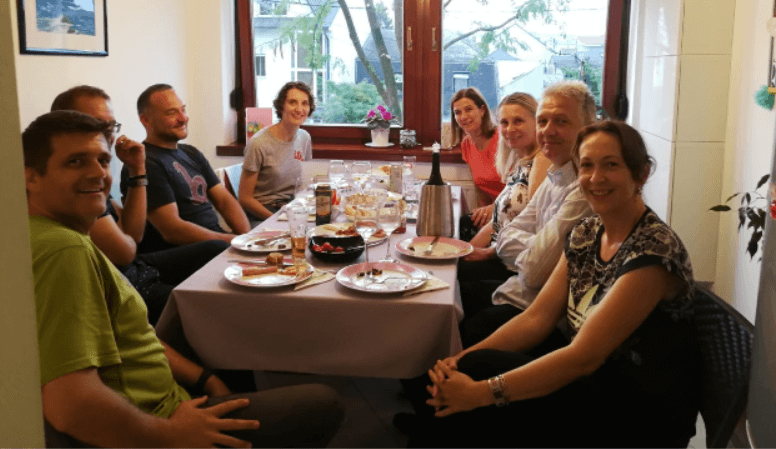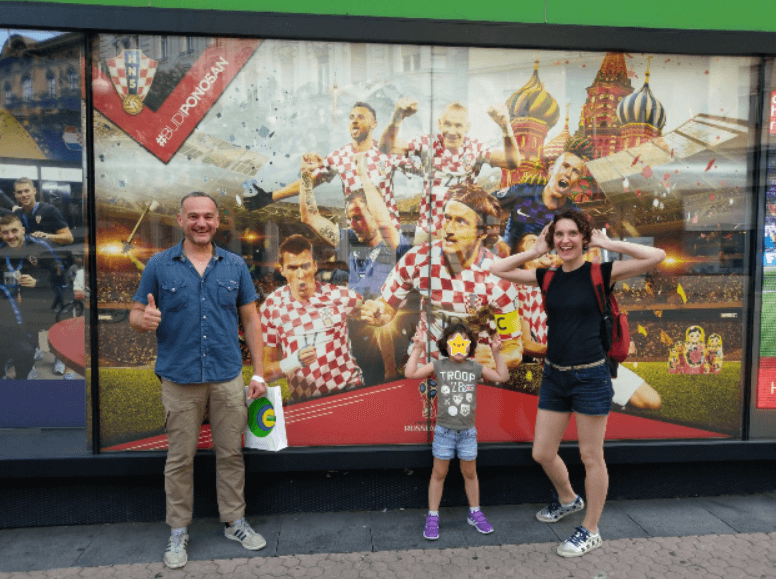Successful Diaspora Returnee Stories: Daniel Nikic, from Canada to Zagreb
September 28, 2019 - Continuing our look at successful returnee stories and experiences from the Croatian diaspora to the homeland, next up Daniel Nikic from Cohres on his journey from Canada to Zagreb.
- Born in Canada, returned to Croatia, something that many diaspora dream of doing. Tell us briefly about your journey.
I was born to Croatian parents from Bosnia and Herzegovina, more specifically from small villages of Ruzici and Tihaljina in the town of Grude. My parents moved to Canada in their early 20s in the late 1960s via Stuttgart, Germany. I grew up in a small town called Halton Hills (45-min drive from Toronto) and had a great childhood. After university, I was not really ambitious in terms of my career and quite frankly I wanted to be like Leonardo DiCaprio in the movie, The Beach. As a kid I would visit Bosnia and Herzegovina in the summers and established good quality relationships with locals, therefore I had some knowledge of Croatia, although vacationing is very different from living (especially for diaspora / ex-pats). I was fortunate to have an uncle who lives in Zagreb and he would always push my cousins and others in Canada to move back to Croatia. Once I finished university in 2009, I spent the summer in Bosnia and Herzegovina enjoying the last days of my youth and moved to Zagreb in September 2009. I worked for my uncle's company for a year and then proceeded to work for a Slovakian real estate development company, which later led me to become an entrepreneur and open my own company, Cohres in 2014. Cohres initially started off as an outsource consulting firm for finance and market research and then restructured in 2017 to focus on investment research.
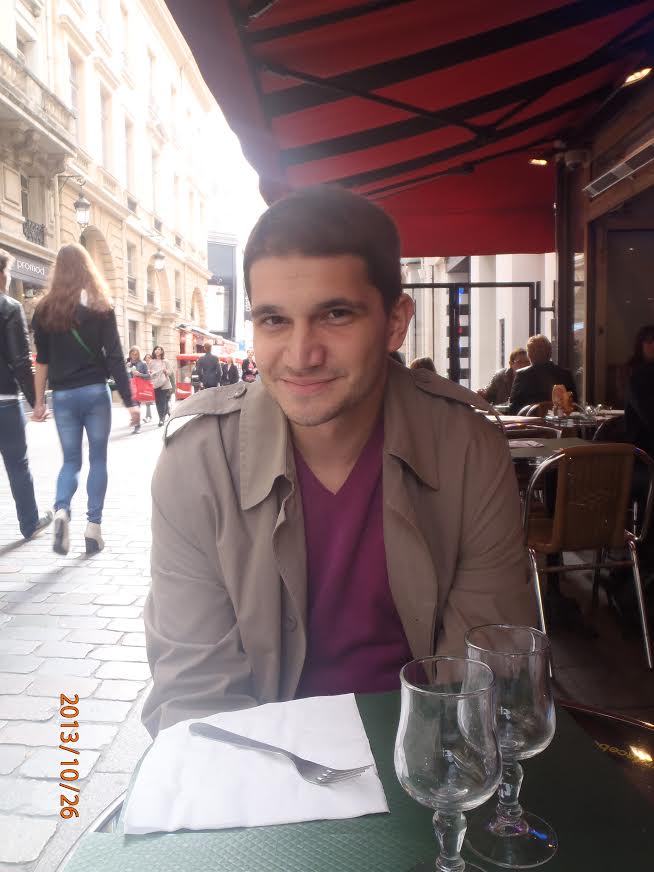
- Looking back, what were your hopes, expectations and fears about moving to Croatia?
The first year in Croatia started off with the mentality to take advantage of being in Croatia, and to not say “what-if” as I did not expect to stay in Croatia for a long time. I quite frankly had a plan to stay one year at most. I did not share my expectations with anyone because I myself was not sure what to expect. I have to admit I missed Canada quite a lot since I felt more Canadian than ever once I started living in Zagreb. In the beginning, I felt a real social-cultural difference between Canada and Croatia, which is logical in some ways, but I was a 21-year old who was quite impulsive to say the least. Overall, my expectation was that it would be easy in Croatia, since I thought economic barriers are not that important, which in some ways is true, however should not be the main and only factor when deciding to move somewhere. I must admit that my fear of moving to Croatia was leaving behind good friends and family back home in Canada and moving on with my own life, similar to what many had to do when leaving Europe to move to North America, Australia and South America. I hoped that Croatia would be a hidden gem and I would become a rock star quickly and gain quick success, well I was wrong about that. It took a lot of patience and persistence to get to where I am today. One thing that I have always felt, and still feel, is that Zagreb has a spirit and it is a city that offers much to do and experience. This is a feeling that has not changed since I first arrived and even now.
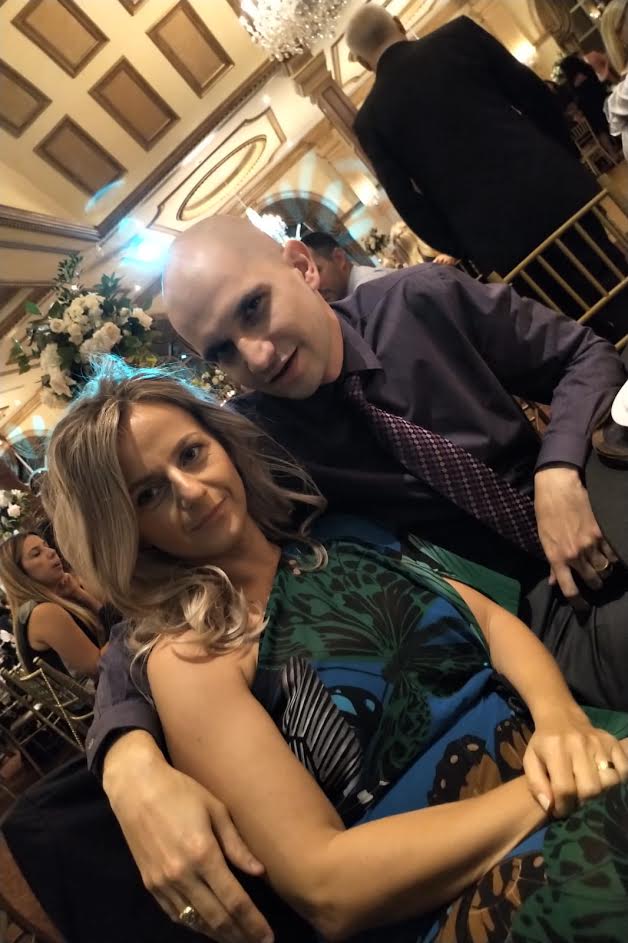
- How supportive was your Croatian community back home at the time?
In terms of back home, I have to admit some people in my life were positive and some were negative when I announced that I would be moving to Croatia. I must be honest, if I did not meet my now wife after my year in Zagreb, I would have most likely moved back, as I told myself I would only stay a year. As the expression goes “you never know what to expect in life.” Those who were negative shared with me that they had bad experiences in Croatia, were afraid of change or were stubborn in their thoughts that there is no potential in Croatia and/or Bosnia and Herzegovina. Those who were supportive stated many times that due to globalization, Croatia should prosper and improve in terms of quality of life. I am glad I pushed myself to stay a minimum of one year in Croatia. All in all, I think many diaspora make their decisions of living in Croatia based on their own expectations and experiences.
- What were the main differences in what you expected to find in Croatia and the reality of living in Croatia?
Personally, I expected Croatia to be very easy-going and that I would not have to work too much to be able to make a comfortable living, which is not true and it is not true for wherever one decides to live. I also felt that Croatia was behind in many factors such as education and work environment, but I must admit, for a small market, Croatia is quite advanced despite bureaucracy issues, just look at how many entrepreneurs there are compared to other countries. Also, I did not realize the lack of adoption to technology in terms of bureaucracy in Croatia, which I believe is a major turn off to many when deciding to live in Croatia. One thing I greatly admire about Croatia is that not everything is commercialized in other words there is an originality that is sometimes hard to find elsewhere.
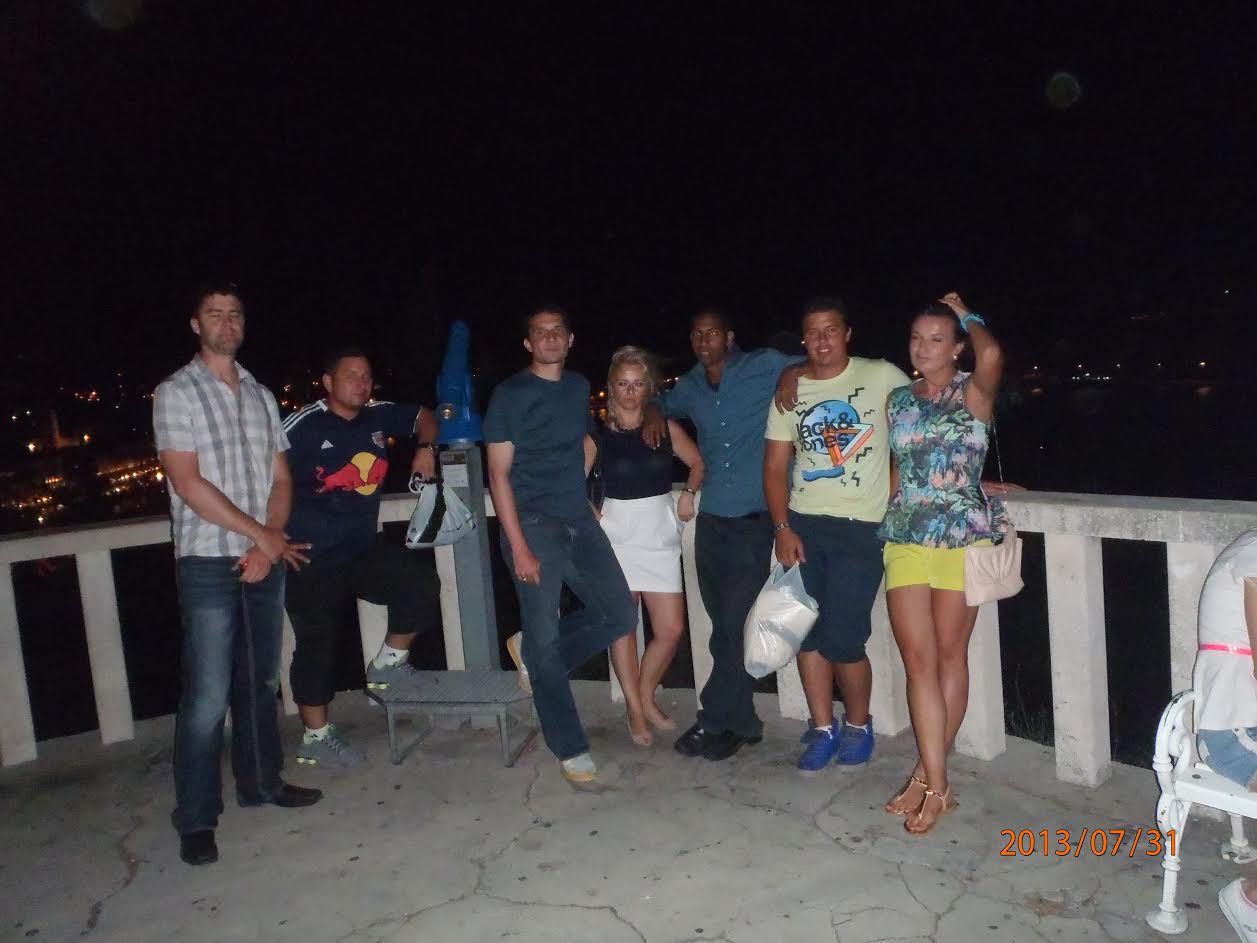
- Many diaspora think of returning but few do. In truth, there is little information out there about real-life stories and help/info about the process. What advice do you have for those who are thinking about making the move?
I think despite what many think about diaspora, moving to Croatia is difficult. If someone is born and raised for example in Canada even if their parents could be from Lika, Dalmatia, or Zagorje they are still Canadian and will most likely to some extent have Canadian values in terms of social and cultural values. There is definitely little information and help/info on the process, because when someone from the diaspora visits Croatia they are usually visiting where their parents are from, as I did and are probably going to touristic destinations, so it is quite difficult to have a clear picture in terms of living in the country. My advice to anyone moving to Croatia is do not expect it to be golden. However, with technology today, the world is becoming connected and Croatia is not a country that is lagging behind or disconnected. There will be struggles, however there are rising opportunities as Croatia is developing. Overall, Croatia to me is a country that has great potential, but you cannot expect the government to work for you, which I believe is a factor that negatively impacts Croatians. I think Croatia can be a great outsource centre for large multinational companies and those companies that hold large value in assets due to location and being able to offer lower wages, which the wages can be very good in Croatian terms.
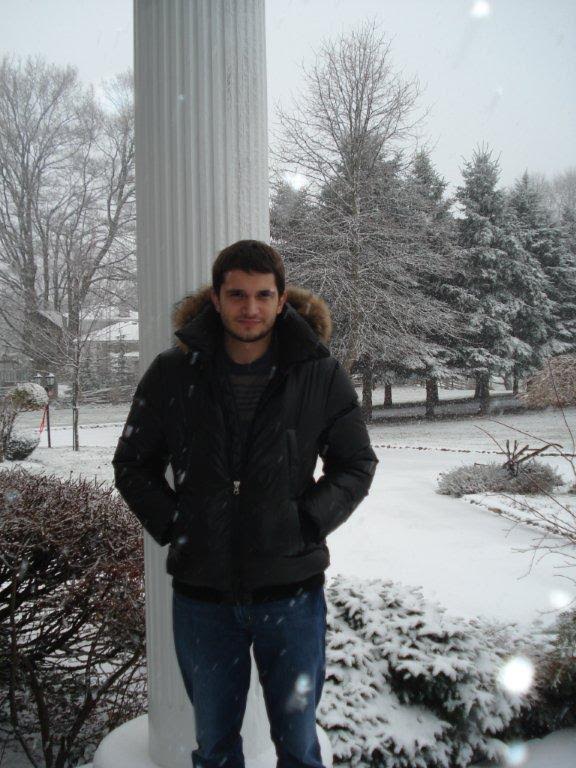
- How were you perceived in Zagreb as foreigners/diaspora moving back - was the welcome warm?
I received some warm welcomes and some negative, which I think is normal for everyone when moving to a new country. I received a few comments, along the lines of judgment that diaspora does not have to work hard or has everything handed to them and that they come from money. This is not true, as to succeed, you must give it your all, and not rely on anyone else or anything else. However, Croatians are warm people, one thing that I have noticed about Croatians is that they are willing to come together to help for example when the devastating floods happened or donating money for someone that is sick or in need. I have to admit many were interested just to know about Canada and would sometimes ask me a million questions such as “why would you leave Canada”? Some would assume that everyone has lots of money in Canada and tell me that Croatia is horrible! After a while I found it difficult to deal with the frequent comments and questions about why I moved back, not due to the subject but the repetitiveness of comments and questions and it felt like a broken record being replayed over and over again.
- Through a lot of hard work, you have been very successful, while many foreigners have given up and left Croatia. What are the keys to success in doing business in Croatia in your opinion?
After working for the Slovakian company that had an office in Croatia for 3 and a half years – I had to decide what to do next. The Slovakian company ended up closing their offices, and I was left searching for work. Fortunately my wife and I had options, which is very lucky since many people do not. My wife is from Bugojno, Bosnia and Herzegovina and lived in Germany as of the mid-90s due to the war and then moved back to Bosnia and Herzegovina, specifically to Ljubuski. Also, due to my wife's and my own life experiences we had options if we decided to not stay in Croatia, to move to Bosnia and Herzegovina, Germany or Canada. During that period when I was without a job, my wife was pregnant and that definitely was a huge factor in making our decision to stay in Croatia.
The only question was if I did not find a job in Croatia, what would I do? Move to Austria, Germany, the UK? I always wanted to become an entrepreneur, and I was motivated by my father in many ways who himself was an entrepreneur, though I never could actually take that risk. I remember while working for the Slovakian company I would have to go to Bratislava often and while I was there I was shocked at how many foreigners lived there and worked for large multinational corporations such as AT&T, Skoda and others as outsourced workers. That is when I began to think, why would I not do the same in Croatia – firstly, English is my native language and secondly, I also had some work experience from Canada and worked in a multinational environment. I made the decision to become an entrepreneur and I decided to focus on something that I felt I was good at, which was finance and market research.
The name of my company became Cohres (Coherent Research) and my focus was the market outside of Croatia (North America and Western Europe) due to their financial capital and work opportunities. I started from my bedroom and worked long hours – quite frankly, being an entrepreneur in the starting phases can at times be lonely. Everything depends on you and you cannot rely on anyone but yourself to execute the idea, although I was lucky to have a family that supported me mentally.
In the end I noticed that being an entrepreneur for over 5 years, no one cares where you are from as long as you can get the job done (obviously there are specific situations where location is a factor). Over the past 5 years, Cohres has enhanced its portfolio working with many funds, asset managers, and investors, which made me change my company's focus in 2017 to investment research. The company now has worked both domestically and internationally serving a wide range of markets. Overall, I think with persistence many in Croatia can be successful and should ignore the negative influences and opinions because at the end of the day those comments do not do anything positive for your life but rather just serve as excuses.
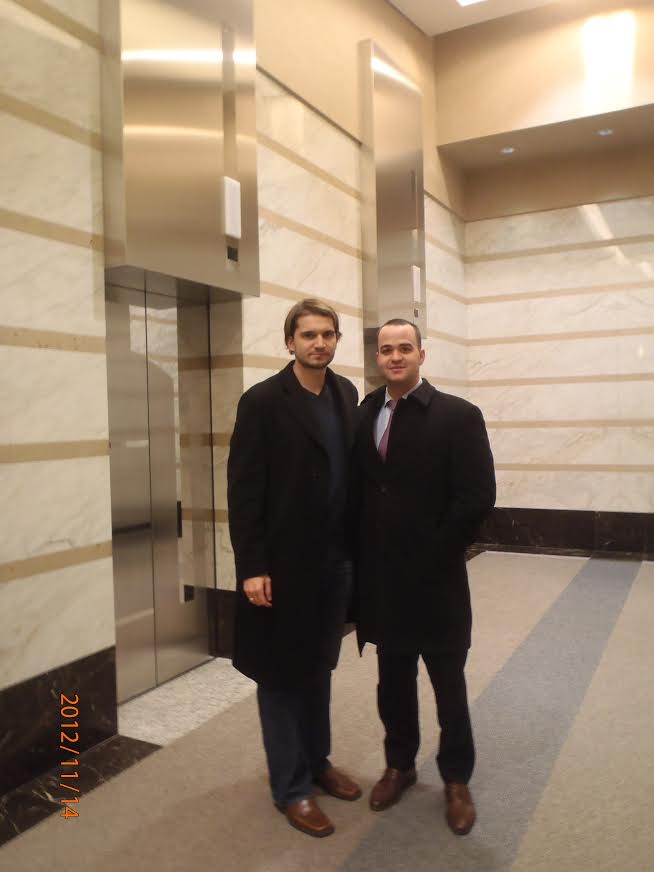
- What is the diaspora community like in Zagreb and how integrated is it with locals?
To be honest I was shocked at how large and impactful the diaspora community is here in Croatia. For example, for Canadians there is the Canadian-Croatian Business Network, which has many members who have been in Croatia since the early 90s. Overall, I believe that Zagreb has a huge community for diaspora due to Zagreb being an economic power in Croatia. As for integration, I believe many have integrated with locals and in my opinion if you do not integrate yourself with locals, you will not be able to live in Croatia or anywhere else happily for over a year because you cannot bring Canada or whatever other country to Croatia and live a specific way, you need to adapt, just like anywhere else.
You can learn more about Cohres and connect with Daniel Nikic via the company website.
For more on the Croatian diaspora, check out the TCN dedicated section.
Are you a returnee who has moved back to Croatia and would like to be featured in this series? Please contact us on This email address is being protected from spambots. You need JavaScript enabled to view it.
Moving Back to the Homeland: Katherine Kurelja, from Boston to Croatia
September 23, 2019 - More and more Croatians in the diaspora are considering moving back to the homeland. Meet one who is about to take the plunge, Katherine Kurelja.
- You live in Boston, have Croatian roots and plan to move to Zagreb. Explain!
It’s simple. The pros and cons of life in Croatia have won out over the pros and cons of American life. For us that means switching from consumer culture to family culture. And it’s certainly not a competition, but I’ll take your news headlines over ours any day.
2. Why now?
Croatia is at an inflection point. I feel the energy every time I go. While some may think Croatia isn’t heading in the right direction, I have met many talented entrepreneurs in Croatia like Hrvoje Kapetanovic, CEO of Undabot and seen what firms like EY are doing to support them that prove otherwise. Their determination is what I want to support at this point in my career. I am truly inspired by the talent in Croatia and the world should know more about what Croatia can offer. More on that below.
And to touch on the emotional side since part of being Croatian is of course being passionate and often via music, there is a song from our Irish friends up north, Mumford & Sons, that sums it up nicely:
“Well I know I had it all on the line
But don't just sit with folded hands and become blind
'Cause even when there is no star in sight
You'll always be my only guiding light”
Only in Croatia there are many stars in sight.
- Moving with the family is a big step. Tell us about the family and what are your greatest fears?
My husband was born in Croatia, left in his mid-20s and has always wanted to go back. When he first met me, he asked if I’d ever want to live in Croatia and my reaction was pretty much “um, nooooo” and now that we have a 5 year old daughter and I see what our lives are like as a family in the US, I am the one who, one summer morning last year (pre World Cup even, so you know I meant business) said “Let’s do it!” Priorities have a way of changing in life.
Fears mainly relate to dealing with my American-ness and reminding myself that some of the things that bug me about Croatia are exactly what make it so special and unique too. So basically, not getting annoyed when people tell me to eat or to dry my hair all the way!
- What about work? Do you have anything lined up?
Given my brand and marketing experience and expertise, I’ll be starting my own agency focused on helping businesses and individuals position themselves to expand outside of Croatia. Related to this, ask me about my idea to put Croatia on the map for its incredible tech talent and capabilities.
- How easy is it to find practical information about relocating, and what sort of support resources are available?
It can be a bit of a maze, but expat groups on Facebook as well as blogs make it relatively easy to get info on the practical side of relocating. Certain details are always elusive, like shipping recommendations, but overall I’ve found communities via social media ready to help. I look forward to meeting you, cool expat & diaspora returnee community! Family in Croatia is of course another great resource. Veze remember?

- What do your friends and family think of your decision to move to Croatia?
What you’d expect. Family here has mixed feelings given we’ll be further away, but we are hoping to lure them back to the homeland. Friends think it’s an incredible idea and completely supportive. I think many visualize us on the beach, but they do get it. And finally, family in Croatia is quite thrilled. Unlike what I hear from others is they don’t ask “Why are we moving?” they just ask “When?”. Good thing too as we love to socialize over gemist and family meals! Free babysitting doesn’t hurt either.
- What are the things you are most looking forward to?
Doing something impactful to help Croatia grow in whatever way we can - big or small, economically or mentally – whatever the community needs. Providing our daughter freedom and independence that is sadly elusive in most of the US these days. And watching more soccer matches in person – Idemo! All of this boils down to a single thread and why we are coming – Croatia is a team and it’s time for my family to get off the bench!
To connect with Katherine This email address is being protected from spambots. You need JavaScript enabled to view it.
Are you a returnee who wants to share your experience? Contact us on This email address is being protected from spambots. You need JavaScript enabled to view it.
For the latest from the Croatian diaspora, follow the dedicated TCN section.
President Welcomes Engagement of Association of Croatian American Professionals
ZAGREB, September 21, 2019 - Croatian President Kolinda Grabar-Kitarović took part in a conference of the Association of Croatian American Professionals (ACAP) in Cleveland on Friday, thanking its members for their work towards the development of Croatia's economy and society as well as for the strengthening of economic relations between Croatia and the United States, her office said in a press release on Saturday.
Over the five years of its existence, the ACAP has contributed to the development of Croatia-US relations, the president said, adding that Croatia strongly supported their work and saw the ACAP as an important partner which contributed to the realisation of Croatia's state interests.
We expect the ACAP to encourage and promote cooperation and exchange of knowledge in the economy and all other areas important for economic development, the president said.
We want you to encourage a faster and more efficient inclusion of young people from Croatia in the labour market, to contribute to their learning, scientific advancement or preparation for enterprise, she said.
We want you to contribute, with your professional knowledge and international experience, to the strengthening of Croatian-American cooperation to the benefit of Croatia's economic and overall progress, she added.
Croatia and the US are partners linked by friendship, good economic relations and excellent cooperation on the political front, Grabar-Kitarović said.
Strong and concrete economic interests can give impetus to future bilateral cooperation, and the Three Seas Initiative enables US companies to enhance their existing business partnership in Croatia and Central Europe as well as create new ones, she said.
The president also said Croatia was open to the further development of economic relations with the US, welcoming US investment in Croatia as well as any form of economic cooperation, and saying she was pleased that there was good will on both sides to use every possibility to enhance cooperation.
One of those possibilities is to expand the legal framework in order to eliminate obstacles to trade and investment, she said, welcoming the attempts on both sides to negotiate an agreement on the avoidance of double taxation.
Such an agreement is not just an economic issue but has political, diplomatic, geo-economic and strategic partnership significance as well, she said, adding that formal steps could be taken at technical level to give the agreement greater priority in the US Department of the Treasury.
The president said she had recently formed a task force comprising representatives of the finance, foreign and economic ministries, the Croatian and American chambers of commerce, and tax consultants from the private sector. She called on the ACAP to actively participate in that job, saying their engagement would facilitate the success of the initiative since, as US citizens, they could encourage the Department of the Treasury to give precedence to Croatia.
By working together, in your interest and the interest of Croatia and the US, I am sure we can succeed, Grabar-Kitarović said.
The president conferred the Croatian Charter on the entire Croatian community in Cleveland for its outstanding contribution, notably in the early 1990s, to the creation of the modern, sovereign and democratic Croatia.
More news about Croats in the United States can be found in the Diaspora section.
Croatian President to Visit Pittsburgh to Celebrate Croatian Fraternal Union of America’s 125th Anniversary
September 18, 2019 - Pittsburgh, PA – Her Excellency Kolinda Grabar-Kitarović, President of the Republic of Croatia, will be visiting the city of Pittsburgh, home to the headquarters of the Croatian Fraternal Union of America (CFU), in honor of the Society’s 125th Anniversary Celebration. The visit, scheduled for this Sunday, September 22, 2019, will begin with a Jubilee Mass held at St. Nicholas Church (Millvale), a distinguished Shrine Church of Croatian heritage, followed by a gala anniversary banquet at the Wyndham Grand Hotel Pittsburgh. The Anniversary Celebration falls on the eve of the 25th Quadrennial Convention of the Society.
“This will be one very special weekend celebration and we are so pleased to have so many prominent Croatian diplomats, Croatian Americans and American officials, attending our Sunday banquet on September 22nd, says Edward Pazo, National President of the Croatian Fraternal Union.
Distinguished guests for the Anniversary Celebration include: His Eminence Cardinal Blasé Cupich, Archbishop of the Archdiocese of Chicago, IL and His Excellency David A. Zubik, Bishop of Pittsburgh. Dignitaries representing the Republic of Croatia include: His Excellency Gordan Grlić-Radman, Minister of Foreign and European Affairs of the Republic of Croatia, Special Envoy of the Prime Minister of the Republic of Croatia Andrej Plenković; Pjer Šimunović, Ambassador of the Republic of Croatia to the United States; and Zdravka Bušić, State Secretary for Political Affairs in the Ministry of Foreign & European Affairs; Mijo Maric and Mirjana Piskulic representatives of the Croatian Homeland Foundation.
National and local dignitaries attending will include: U.S. Congressman Mike Doyle, representing the 18th Congressional District of the U.S. House of Representatives and a founding member of the House Congressional Croatian Caucus; Mayor William Peduto of the City of Pittsburgh; and Rich Fitzgerald, Allegheny County Executive.
The CFU is the largest Croatian organization outside of Croatia and in its 125th year of existence. Headquartered in Wilkins Township, PA, CFU has more than 30,000 members in Southwestern Pennsylvania and nearing 50,000 members globally. It is a fraternal benefit organization based on a program of benevolence, service to its members and the communities in which they live.
More diaspora news can be found in the dedicated section.
Contracts on Financial Support to Projects for Bosnian Croats Signed
ZAGREB, September 7, 2019 - A total 89 agreements on financial support, in the amount of 26 million kuna (3.5 million euro), for projected important for the Croat people in Bosnia and Herzegovina were signed in the village of Tolisa near the northern Bosnian town of Orašje on Friday evening.
The contracts confirm the continuity, systematic approach and consistency of Croatia's policy towards the Croats in Bosnia and Herzegovina and good neighbourly support which Zagreb offers to Bosnia and Herzegovina, said Croatian Prime Minister Andrej Plenković, who attended the agreement-signing ceremonies in the Franciscan Monastery, the landmark of the village of Tolisa.
We have come here with the wish to arrange our relations in a quality manner and with our wish to settle our outstanding issues, and to show through the support to the whole of Bosnia and Herzegovina also our care for the rights of the Croats, he added.
Plenković recalled that earlier in the day his cabinet also approved a grant of 600,000 kuna for the Catholic school centre in Bihac.
Thanking for the support and financial assistance, the Bosnian Croat leader Dragan Ćović of the Croatian Democratic Party of Bosnia and Herzegovina (HDZ BiH) said that the support had to date been given by Croatia for thousands of projects essential for the end users and institutions that had implemented them.
During his stay in Orašje, Plenković, accompanied by Foreign Minister Gordan Grlić Radman and other officials, also met with representatives of the local authorities in Posavina Canton.
More news about Croats in Bosnia and Herzegovina can be found in the Diaspora section.
Scholarships Offered for Online Learning of Croatian
ZAGREB, August 21, 2019 - The Central State Office for Croats Abroad has published a call for scholarships for online learning of Croatian in the coming school year.
The office will award 10 scholarships for attending the semester-long online courses of the Croatian language.
The grants refer to the online course called HiT-I organised by the University of Zagreb, the Croatian Heritage Foundation (HMI) and the University Computing Centre SRCE.
More information is available on https://matis.hr or on the Office's website.
Applications can be sent by ethnic Croats living abroad, and descendants of Croat expat communities as well as their spouses and foreigners interested in Croatian heritage and culture, provided that they are above 18 of age and have finished at least secondary school.
More diaspora news can be found in the dedicated section.
ACAP's Rocking Croatian Excellence Conference in Cleveland Seeks to Connect Businesses
CLEVELAND, AUGUST 14, 2019 – The Association of Croatian American Professionals (ACAP) is hosting their fourth annual conference in Cleveland, Ohio from Sept. 19 to 22, 2019. The ACAP conference will bring together professionals from all facets of the U.S. and international professional community.
The Croatian Chamber of Economy (Hrvatska Gospodarska Komora) is organizing a delegation of Croatian businesses to attend the conference and to participate in a Business–to–Business (B2B) meeting. ”This is a tremendous opportunity for Croatian businesses to connect with businesses in Cleveland, across the United States and throughout the world. We’re excited to see what this venture with the Croatian Chamber of Economy might bring,” says Mario Jurcic, vice president, ACAP Cleveland.
ACAP and the Croatian Chamber of Economy are jointly organizing the B2B meeting and are looking for companies in the United States, Croatia and around the world to take part in the event. Any type of industry is welcome to participate—from the arts to technology to engineering to food and beverage and everything in between.
The B2B meeting will consist of presentations and speed networking where companies can learn more about each other and make possible business connections. The meeting is scheduled to take place in Cleveland on Saturday, Sept. 21 from 9 a.m. until 12 p.m. The location is to be determined.
To date, Croatian companies that will be in Cleveland for the B2B meeting represent a wide range of specialties such as: aerospace, automobile, construction, education, information technology, metal and plastic manufacturers and companies specializing in smart city solutions. Croatian businesses are looking for American partners for ventures in the Croatian, European Union and North American markets.
“As a business owner, I know how valuable this meeting is. It can put businesses on another level and enable them to break into markets in different parts of the world for global expansion,” says Mario Jurcic, vice president, ACAP Cleveland.
To register for the B2B meetings, please email Mario Jurcic at This email address is being protected from spambots. You need JavaScript enabled to view it. by Wednesday, Aug. 21 at 12 p.m. (EST). To purchase conference tickets or for more information, please visit conference.croampro.com.
Association of Croatian American Professionals (ACAP)The Association of Croatian American Professionals is a non-profit organization bringing together professionals, business leaders, academics, students and community organizers. Their mission is to foster leadership, collaboration and to promote the advancement of issues relevant to the Croatian-American community. In four years, ACAP has expanded to 16 chapters in the United States and Croatia with 750 members, and growing, worldwide. Visit croampro.com for more information.
Croatian Chamber of Economy (CCE)The Croatian Chamber of Economy is an independent professional and business organization of all legal entities engaging in business. CCE has been promoting, representing and protecting the interests of its members in Croatia and abroad for over 165 years.
The Chamber consists of the headquarters in Zagreb and 20 county chambers. Functionally, the CCE consists of 11 departments dealing with the respective branch of the economy, 63 professional associations and 33 affiliations. Apart from this, within the CCE acts the Permanent Arbitration Court, Conciliation Centre, Court of Honor and CCE Office for Areas of Special State Concern.
****
And here is the earlier event announcement for the conference.
Are you ready to rock Croatian excellence?!
The Association of Croatian American Professionals has an action-packed weekend planned for our fourth annual conference in Cleveland, Ohio - the home of the Rock and Roll Hall of Fame - from Sept. 19 to 22, 2019.
The ACAP conference will bring together professionals from all facets of the U.S. and international professional community—such as diplomats, scientists, travel agents, artists, engineers, medical professionals, attorneys, journalists, business executives, social media specialists, accountants, as well as a delegation from Croatia’s Chamber of Commerce.
Tomislav Mihaljevic, MD, Cleveland Clinic CEO and President, has committed to be a featured speaker.
Conference weekend activities include:
Thursday, Sept. 19: tour of Cleveland Clinic, evening welcome reception
Friday, Sept. 20: day-long conference, gala dinner and awards, downtown Cleveland afterparty
Saturday, Sept. 21: Croga (yoga to Croatian music), Croatian handmade market, Cleveland tours, evening fundraiser, night out in downtown Cleveland
Sunday: farewell reception, additional local event: mass at St. Paul Croatian Church
Join us at ACAP#2019 where we'll show the world how much Croatians and Cleveland rock!
For more information or to purchase your tickets, please visit conference.croampro.com.
To follow the latest from the Croatian diaspora, follow the dedicated TCN section.
Žigmanov says Serbian Minister Should Care More about Ethnic Croat Heritage
ZAGREB, August 12, 2019 - The leader of the Democratic Alliance of Vojvodina Croats (DSHV) and a member of the Serbian parliament, Tomislav Žigmanov, on Monday called on Serbian Culture Minister Vladan Vukosavljević to pay more attention to the protection of the Croat cultural heritage in Serbia than to Nikola Tesla, who has recently caused new disputes between Belgrade and Zagreb.
Vukosavljević on Friday accused Croatia of laying claim to Tesla, a US and Croatian inventor of Serb origin, by planning to present him as a Croatian inventor at the Expo 2020 in Dubai.
"We have been following with regret a strange and unsolicited interest of Serbia's Culture and Information Minister Vladan Vukosavljević in Nikola Tesla, a Serb from Croatia, and his status in contemporary cultural practices in Croatia, a country where political representatives of the local Serb community are part of the governing majority," Žigmanov told Hina.
Žigmanov fears that "the minister's national exclusivity and zealotry" will hamper efforts to normalise relations between the two countries.
"On the other hand, Serbian citizens of Croat background would prefer the culture minister telling them how much funding has been set aside and which activities have been undertaken to preserve the local Croat material cultural heritage, particularly sites of worship since a number of Catholic churches is in a dilapidated condition," Žigmanov said.
Žigmanov also criticised the Serbian minister for having allocated significantly higher funds to the Bunjevci ethnic community who consider themselves non-Croats and who are a considerably smaller community than local Croats.
He wonders why the minister allows the laying of claims to ethnic Croat intangible heritage such as "Dužijanca", the custom of traditional thanksgiving pilgrimage celebrating the completion of the harvest season, and notes that although local Croats in the region of Subotica have been celebrating those festivities for more than a century, the Serbian authorities are set to register them as the heritage of the non-Croat Bunjevci community.
This past Friday the Serbian culture and information ministry issued a statement condemning what it described as an unacceptable attempt by Croatia to lay claim to Tesla, whom it said the entire world recognised and remembered as a Serb who spent a large part of his life in the United States.
At the Expo 2020 in Dubai, Croatia will present itself as a country of innovative projects, inventions and world-famous scientists, including Nikola Tesla.
The accusations from Serbia prompted Croatian Culture Minister Nina Obuljen Koržinek to underscore that Croatia "remembers Tesla with respect, without trying to deny his ethnic background."
"The Croatian encyclopaedia describes Nikola Tesla as a US and Croatian inventor of Serb descent. Tesla was born in Croatia, he was educated in Croatia and left Croatia for Austria and later for the Czech Republic, Hungary, France and the United States," the minister said.
She added that unlike Serbia, which has not stopped falsifying history and laying claim to other countries' great people, Croatia "remembers one of the biggest inventors with respect, without trying to deny his ethnic background."
Vukosavljević responded by saying that Tesla was born in 1856 in the village of Smiljan, "in the Austrian Empire, in an area called the Military Frontier, which was almost exclusively populated by Serbs, and his father was a Serb Orthodox priest."
"How has a Serb, born in the Austrian Empire, in the area of the Military Frontier, at a time when there was no inkling of a Croatian state, become a 'Croatian inventor'," Vukosavljević said, adding that he considered such an interpretation "illogical and historically unfounded."
More news about the status of Croats in Serbia can be found in the Diaspora section.
Croatian World Congress Seeks 6 Seats in Parliament for Diaspora
ZAGREB, July 28, 2019 - The Croatian World Congress (HSK), an organisation of Croatian expatriates, called on Saturday on the Croatian government and Croat representatives in the Bosnian government to create programmes to encourage the return of expatriates, also asking to be guaranteed six seats in the Croatian parliament.
At its annual assembly in Mostar, Bosnia and Herzegovina, the HSK said it was incomprehensible that Croatian citizens abroad were prevented from voting because of the small number of polling stations and the impossibility to vote electronically or by post.
The HSK said expatriates should be represented in Croatia's parliament by one member each from Australia, South America, the US, and Canada, and by two from Europe.
It's incomprehensible and damaging that Croatian expatriates have fewer rights than ethnic minorities in Croatia, the HSK said, adding that MPs from the diaspora would help to strengthen the ties between it and the homeland.
The HSK went on to say that it was high time for "responsible institutions in the homeland" to start offering attractive programmes to returnees which, it added, would improve the demographic situation and revive the Croatian economy.
The HSK also called on all Croatian institutions to stand up for Croats in BiH, saying that despite being a constituent people, they were reduced to a neglected ethnic minority in BiH.
More Diaspora news can be found in the dedicated section.
Croatia Sets Aside Millions for Diaspora Projects in 11 European Countries
ZAGREB, July 15, 2019 - Croatia has earmarked 4.85 million kuna for grants to programmes and projects of Croatian diaspora in 11 European countries this year, according to a decision adopted by State-Secretary in the Central State Office for Croats Abroad, Zvonko Milas.
A quarter of that amount, 1.2 million kuna, has been set aside for programmes and activities of ethnic Croats in Serbia.
Thus, the Croatian National Council in that country can count on 125,000 kuna for its development programmes and for boosting media visibility and education in the Croatian language in Serbia.
In 2019, 13 associations and societies of the Croat community in Slovenia have 550,000 kuna at their disposal under this scheme of the Zagreb-based Office.
Furthermore, a half million kuna has been earmarked to Croat associations in Austria and approximately the same amount has been allocated to ethnic Croats in Hungary.
Zagreb has set aside 400,000 kuna for activities of ethnic Croats in Montenegro this year.
Also, ethnic Croat communities in Italy, Romania, North Macedonia, Kosovo, Czechia, and Slovakia have been given grants for their programmes.
More diaspora news can be found in the dedicated section.



